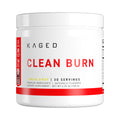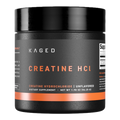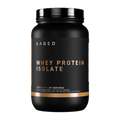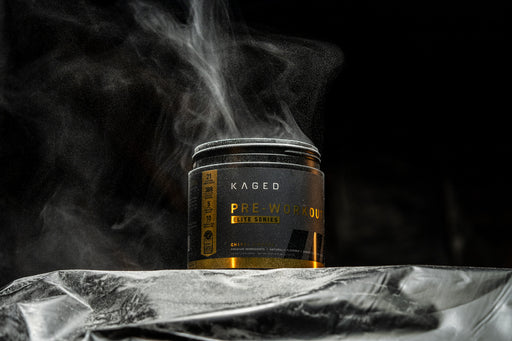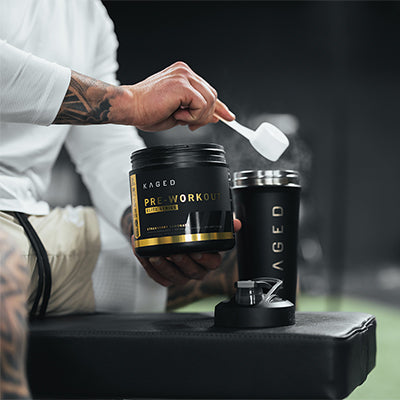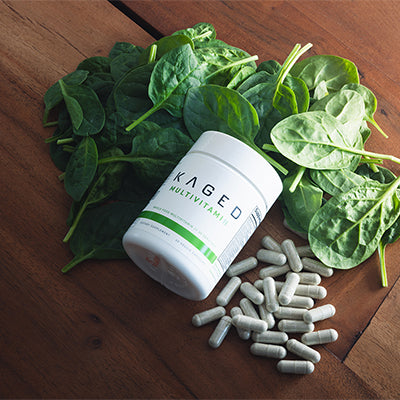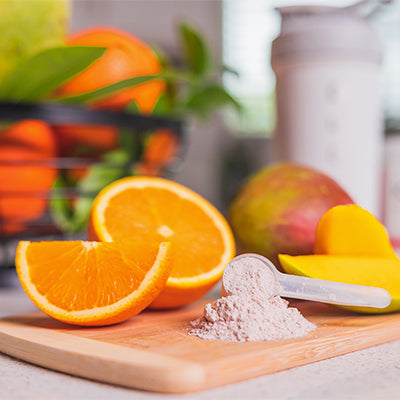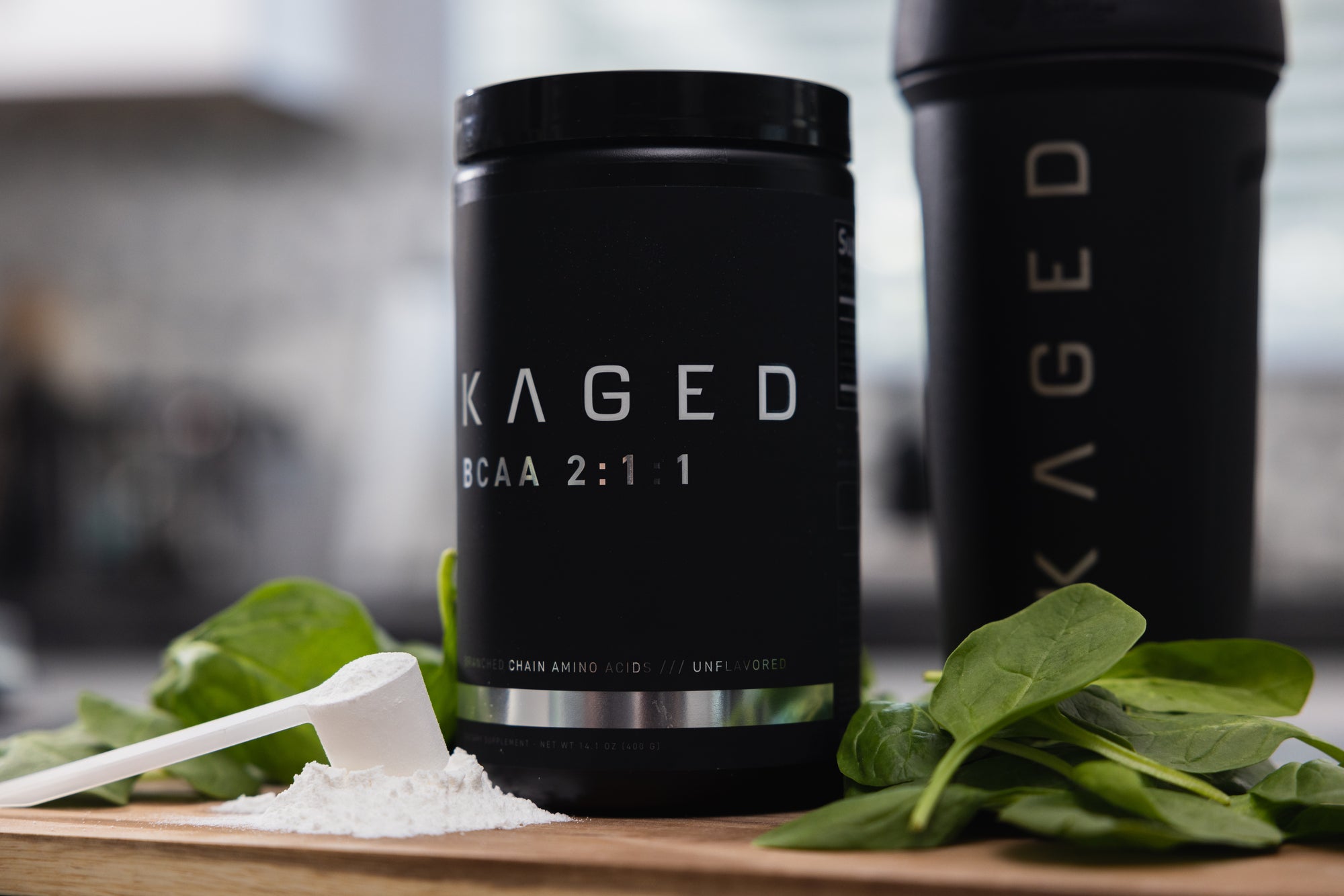Comparing BCAA vs creatine is like comparing apples to oranges. In reality, they're very different. They support you in the gym in different ways, with different mechanisms, and have different uses.
In this article, we'll explain how these popular supplements work and help guide you on when you should supplement with each, if at all.
First, let’s give some basic background.
A Quick Overview of BCAAs
Branched-Chain Amino Acids, commonly known as BCAAs, are a group of three essential amino acids: Leucine, Isoleucine, and Valine. They are termed "branched-chain" due to their chemical structure, which includes a branch off the main carbon backbone.
-
Leucine: Often regarded as the most critical of the three, leucine plays a significant role in muscle protein synthesis. It activates a key enzyme called mTOR, which triggers the muscle-building process.
-
Isoleucine: While it also contributes to muscle protein synthesis, isoleucine is known for its role in increasing glucose uptake and usage during exercise, providing energy and endurance.
-
Valine: Valine helps to maintain nitrogen balance and serves as an additional source of energy for muscles during physical activity.
Food Sources of BCAAs
Nobody would deny you need BCAAs. Your body literally can’t make them. BCAAs can be found naturally in protein-rich foods such as:
- Meat (beef, chicken, turkey)
- Fish (salmon, tuna)
- Eggs
- Dairy products (milk, cheese, yogurt, whey protein)
- Many plant-based proteins (Lentils, chickpeas, quinoa)
Role in Muscle Protein Synthesis
BCAAs, particularly leucine, are crucial for initiating muscle protein synthesis, the process by which the body repairs and builds new muscle tissue. This makes them especially important for athletes and individuals engaged in regular strength training.
Impact on Muscle Protein Synthesis and Recovery
BCAAs are directly metabolized in the muscles rather than the liver, allowing for a quick supply of energy during exercise. This unique property helps reduce muscle fatigue and soreness, speeding up recovery times post-workout. Supplementing with BCAAs can thus enhance endurance, reduce exercise-induced muscle damage, and support muscle growth and repair.
Understanding these basics about BCAAs sets the stage for differentiating them from creatine, highlighting how each supports your fitness goals in unique ways. In the next section, we’ll delve into what creatine is and how it functions differently from BCAAs.
Since You Get Them From Food, Should You Supplement With Them?
If you're consuming a diet rich in complete proteins from the sources listed above, you might not need to supplement with BCAAs. However, there are specific situations where BCAA supplementation can be beneficial:

-
During a Cut Phase: When you're intentionally eating fewer calories to lose body fat, BCAAs can help reduce muscle breakdown. This preservation of muscle mass is crucial during a calorie deficit to maintain strength and overall body composition.
-
If You're Practicing Intermittent Fasting: Intermittent fasting involves extended periods without food, which can lead to muscle loss. Supplementing with BCAAs during fasting periods can help preserve muscle mass by providing essential amino acids directly to your muscles, supporting maintenance and growth even when you’re not eating. This is why BCAAs are on our list of the best supplements for intermittent fasting.
In these scenarios, BCAAs can be a valuable addition to your supplement regimen, helping you maintain muscle mass even under periods of dietary restrictions. They're still some of the most important amino acids for muscle growth.
How to Spot a High-Quality BCAA Supplement
Not all BCAAs are created equal. Kaged BCAAs stand out for a few reasons. Some BCAAs on the market are made with cheap, untested ingredients derived from human hair and bird feathers. The Kaged BCAAs are 100% vegan, fermented, and non-GMO.
Second, we use the scientifically tested 2:1:1 ratio of BCAAs (L-Leucine: L-Isoleucine: L-Valine).
Third, we worked hard to perfect the formula so that it mixes rapidly and completely. It comes in an unflavored powder that’s easy to add to any stack.

As you’ll see, this is completely different from the topic of creatine.
A Quick Overview of Creatine
Creatine is a naturally occurring compound found in small amounts in certain foods and synthesized by the body. It is primarily stored in the muscles and used as a quick source of energy during high-intensity, short-duration activities like weightlifting and sprinting.
How the Body Produces Creatine
The body produces creatine from three amino acids: arginine, glycine, and methionine. This synthesis occurs primarily in the liver and kidneys, after which creatine is transported to the muscles, where it is stored as creatine phosphate.
Food Sources of Creatine
Creatine is found naturally in foods, particularly in:
- Meat (beef, pork)
- Fish (salmon, herring)
- Poultry
While these foods provide creatine, the amount is relatively small compared to the levels typically achieved through supplementation.
This is a key distinguisher. With BCAAs, you can often get 100% of the optimal amount from food. With creatine, that’s rarely the case.
Role in ATP Production and Energy Supply and Performance
Creatine plays a crucial role in the production of adenosine triphosphate (ATP), the primary energy carrier in the body. During high-intensity exercise, ATP is rapidly broken down to produce energy. Creatine phosphate donates a phosphate group to ADP, regenerating ATP and allowing for continued high-intensity performance.
Impact on ATP Production and Energy During High-Intensity Exercise
By increasing the available pool of creatine phosphate in muscles, creatine supplementation can delay fatigue, enhance muscle strength, and improve overall power output.* This makes it a great supplement for anybody who strength trains.
Effects on Muscle Strength, Power, and Overall Performance
Numerous studies have shown that creatine supplementation can lead to significant improvements in muscle strength, power, and exercise performance.* It supports increased training volume and intensity, which can lead to greater muscle gains and enhanced athletic performance over time.*
Are There Benefits to Taking BCAA and Creatine Together?
There isn’t strong evidence to suggest a synergistic effect when taking BCAAs and creatine together. Each supplement works through different mechanisms and provides distinct benefits, so combining likely won't enhance their individual effects.
However, taking them together can be convenient. Combining BCAAs and creatine in a single drink can make your supplementation, ensuring you consistently get the benefits of both without the hassle of separate intakes. We include both along with a dozen other ingredients in our award-winning pre-workout, Pre-Kaged.

How to Spot a High-Quality Creatine Supplement
First, make sure it’s banned-substance tested. That way, you can trust that what’s on the label is safer for athletes.
Second, look for one that focuses on absorption and mixability. Our patented Creatine HCl mixes incredibly well. You can read more about the benefits of Creatine HCl here. Our creatine monohydrate we designed with micronized technology so that it also mixes well.
Finally, consider whether you want flavored or unflavored creatine or whether you’d prefer capsules.
At Kaged, all of our creatine supplements check these boxes.
Shop Creatine

